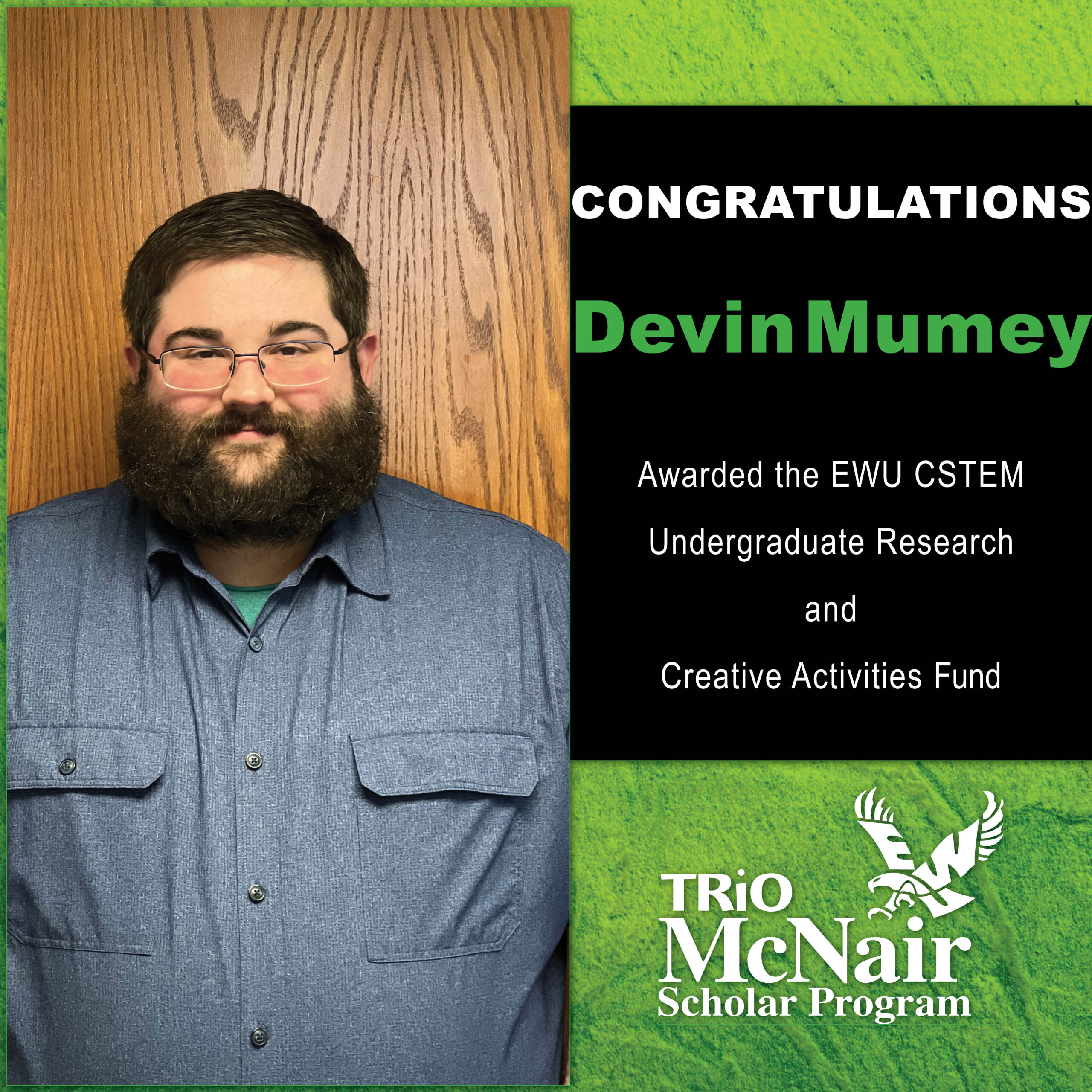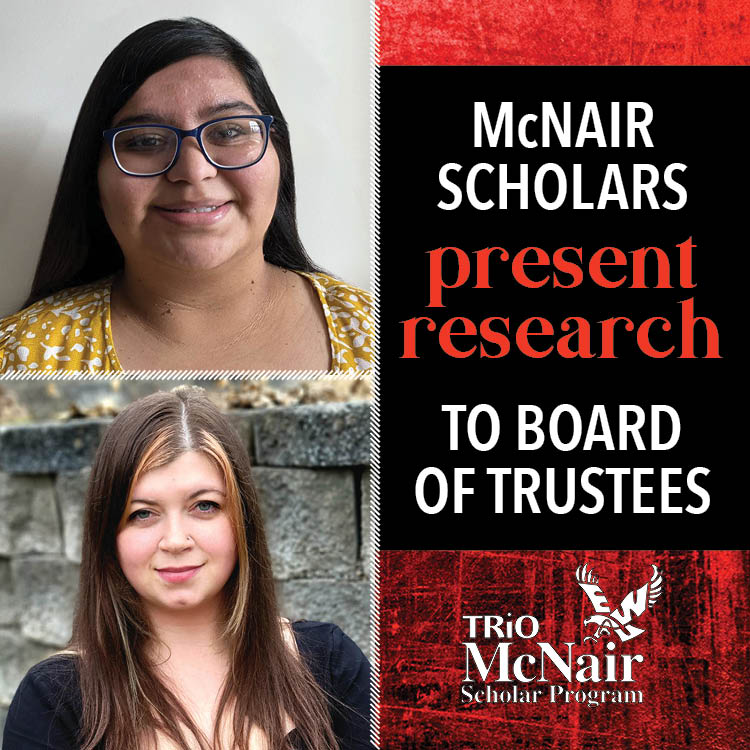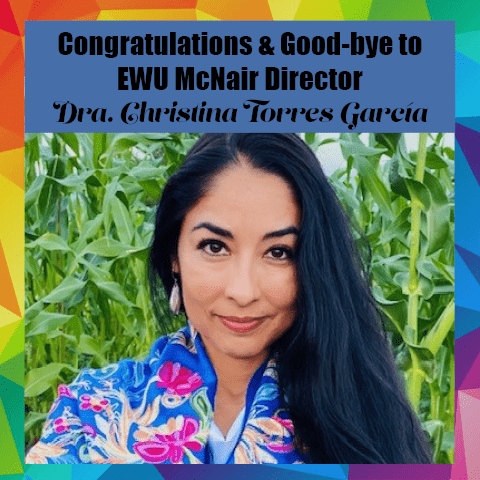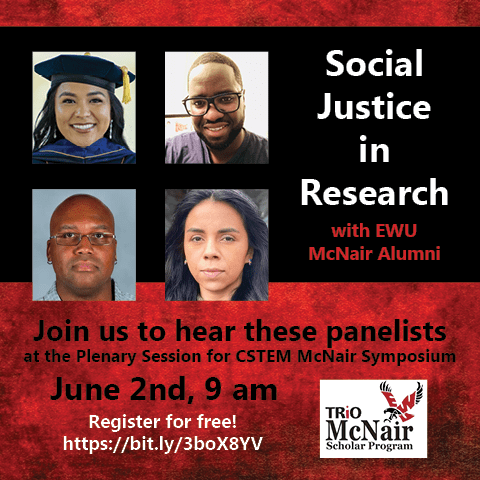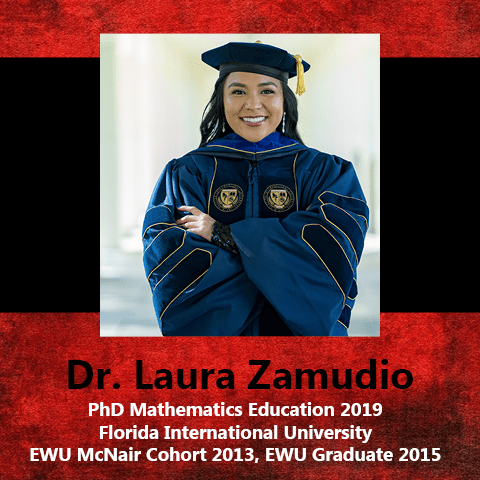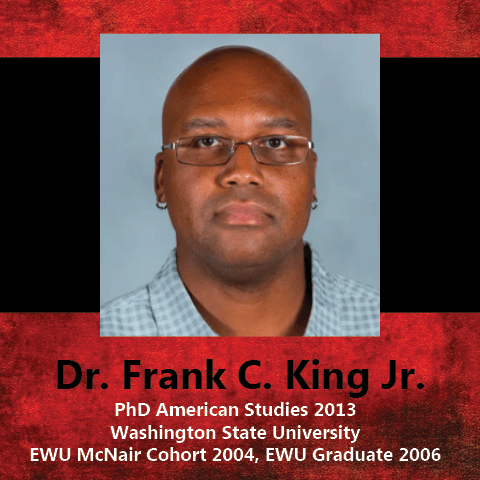McNair Scholar Devin Mumey Honored with CSTEM Undergraduate Research and Creative Activities Fund Award
McNair Scholar Devin Mumey has been selected to receive a CSTEM Undergraduate Research and Creative Activities Fund award. This award is provided through the Eastern Washington University Department of Biology with donor funding, supplying resources that expand the scope of research study available to undergraduates. Devin submitted a proposal for a new research project, continuing … Read more
